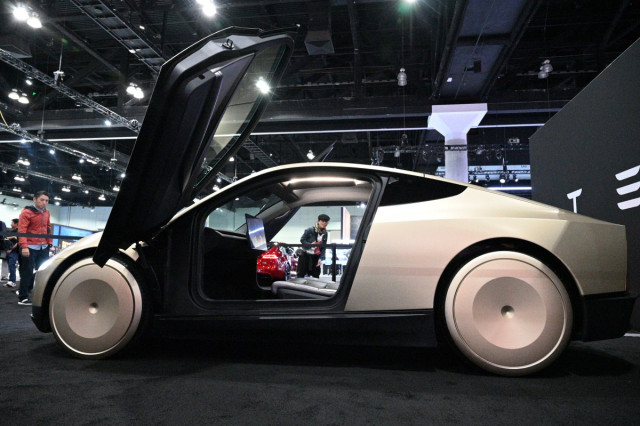Tesla is set to start its robotaxi service in Austin on Sunday, a move that supporters of Elon Musk believe could usher in a new era of growth for the company.
This launch will utilize the Model Y SUV instead of the much-anticipated Cybertruck, which is still in development.
The highly awaited debut follows a recent public spat between Musk and Trump, sparking a wave of harsh exchanges from both individuals.
Since then, Musk has shown remorse for some of his comments, while his Texas operations have geared up for the Austin rollout, part of an extensive initiative aimed at advancing autonomous technology and artificial intelligence, which optimists believe could generate significant profits.
Analyst Daniel Ives from Wedbush highlighted that autonomous technology could potentially add $1 trillion or more in market value, despite skepticism surrounding Tesla's robotaxi aspirations.
He speculated that Trump’s administration would facilitate progress for Tesla, moving past the recent turmoil.
However, the launch in Texas comes with concerns about how Tesla will handle the backlash regarding Musk's Trump-related activities.
Tesla's earnings fell by 71 percent in the first quarter due to weak sales across multiple markets.
Choosing Austin for this launch reflects Musk's preference for a state with a business-friendly regulatory climate.
The Texas Department of Transportation indicated that autonomous vehicle testing is allowed as long as they comply with existing safety and insurance regulations.
An Austin resource named six autonomous vehicle companies at varying operational stages, including Tesla and others.
Yet, a recently enacted Texas law mandates approval from the state’s Department of Motor Vehicles for operating autonomous vehicles without human oversight, prompting a group of Democratic lawmakers to formally request Tesla postpone testing until the law becomes effective on September 1.
If Tesla goes ahead this weekend, the lawmakers requested compliance details to ensure adherence to the new legislation.
Musk had originally scheduled the launch for June 12 but delayed it, citing safety concerns.
He emphasized a cautious approach, planning to start with only 10 autonomous vehicles in the first week, with expectations to increase that number to around 1,000 within months and to expand to other cities like San Francisco, Los Angeles, and San Antonio thereafter.
The service will operate from 6:00 am to midnight and will only be accessible to selected early users in a designated area, as noted by Tesla owner Sawyer Merritt.
Last fall, Musk revealed the Cybercab, which is designed without steering wheels or pedals, but production won’t commence until 2026.
Tesla's robotaxi service launches long after Waymo has initiated its commercial offerings across several U.S. cities. Following reports of accidents, the U.S.
National Highway Traffic Safety Administration launched an investigation into Tesla's Full Self-Driving software in October 2024, and has sought further information from the company regarding the upcoming Austin service.
Nonetheless, the NHTSA clarified that it does not pre-approve new technologies; manufacturers are responsible for certifying compliance with its comprehensive safety standards, while the agency conducts inquiries into safety defect allegations.




















